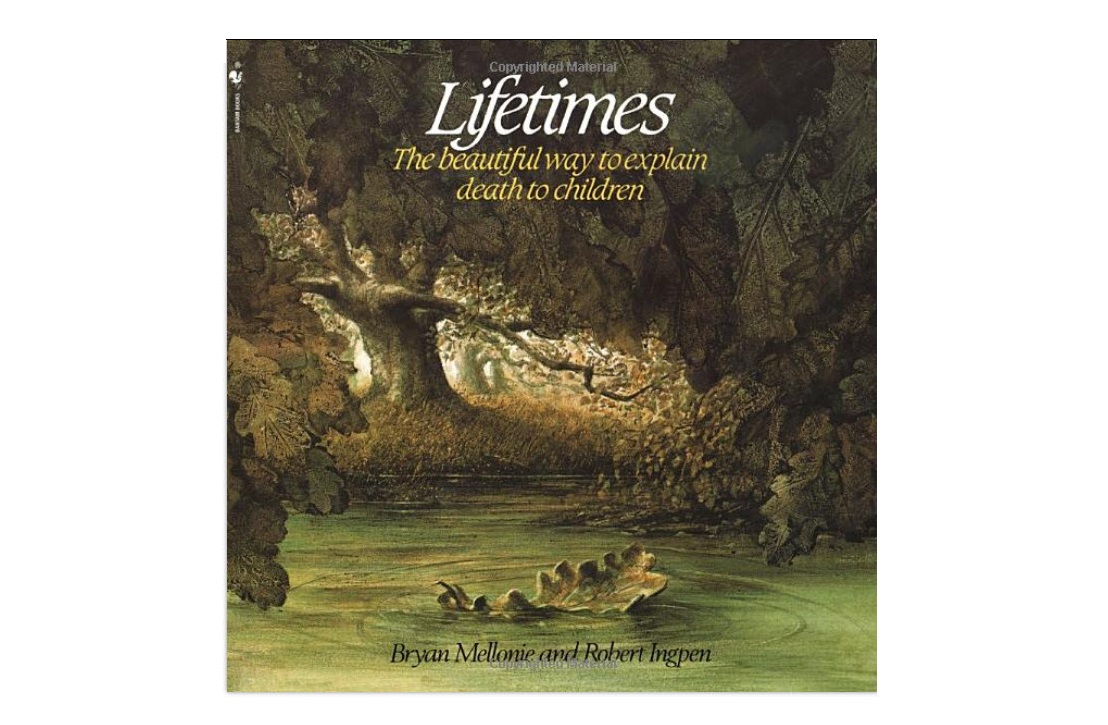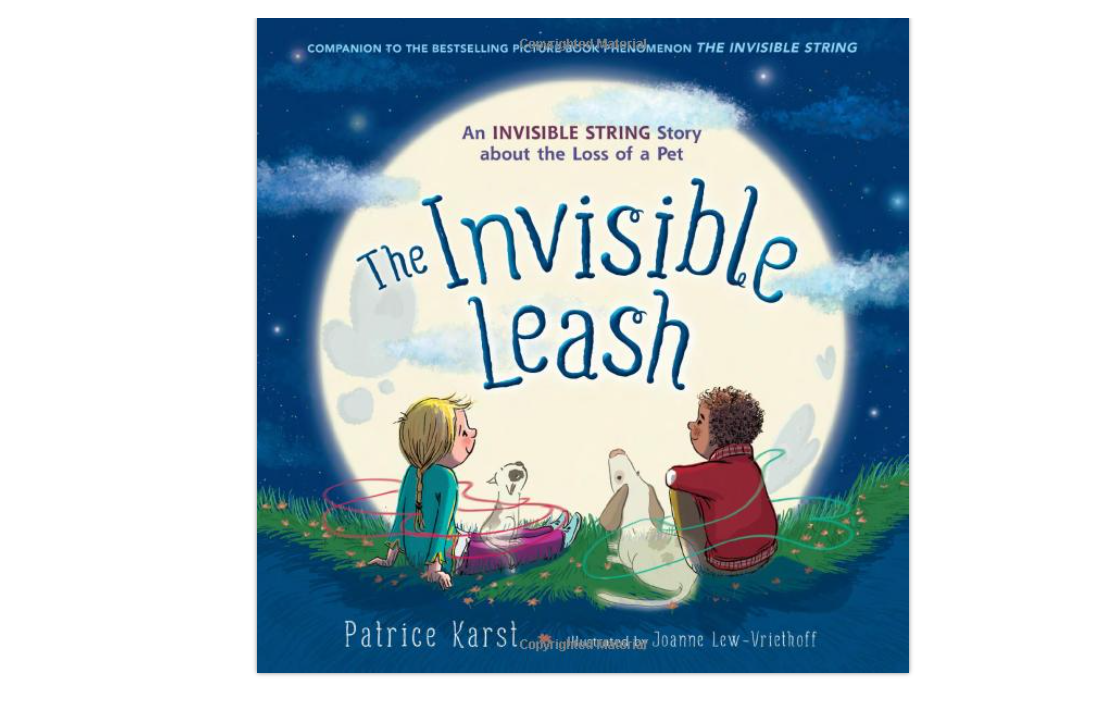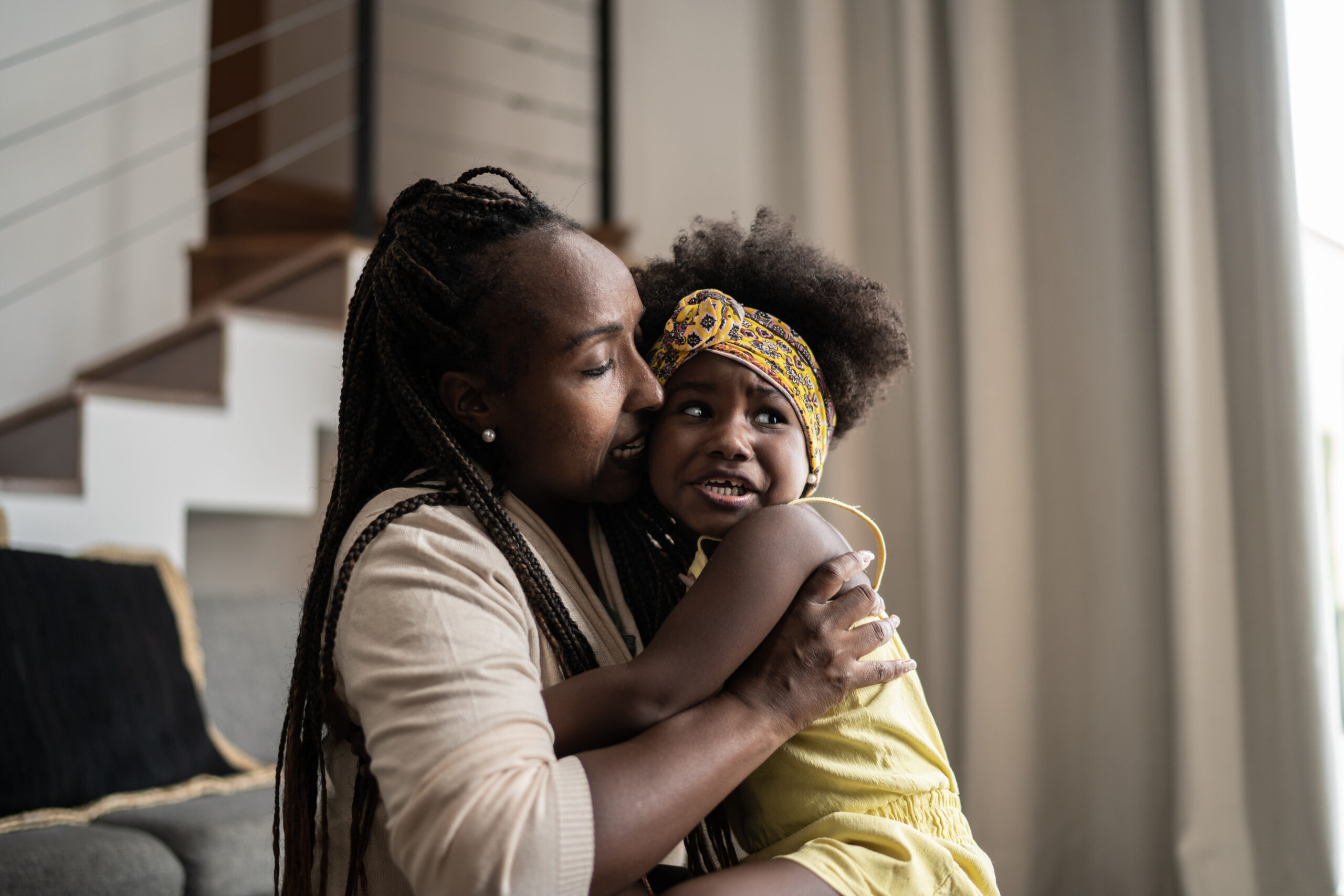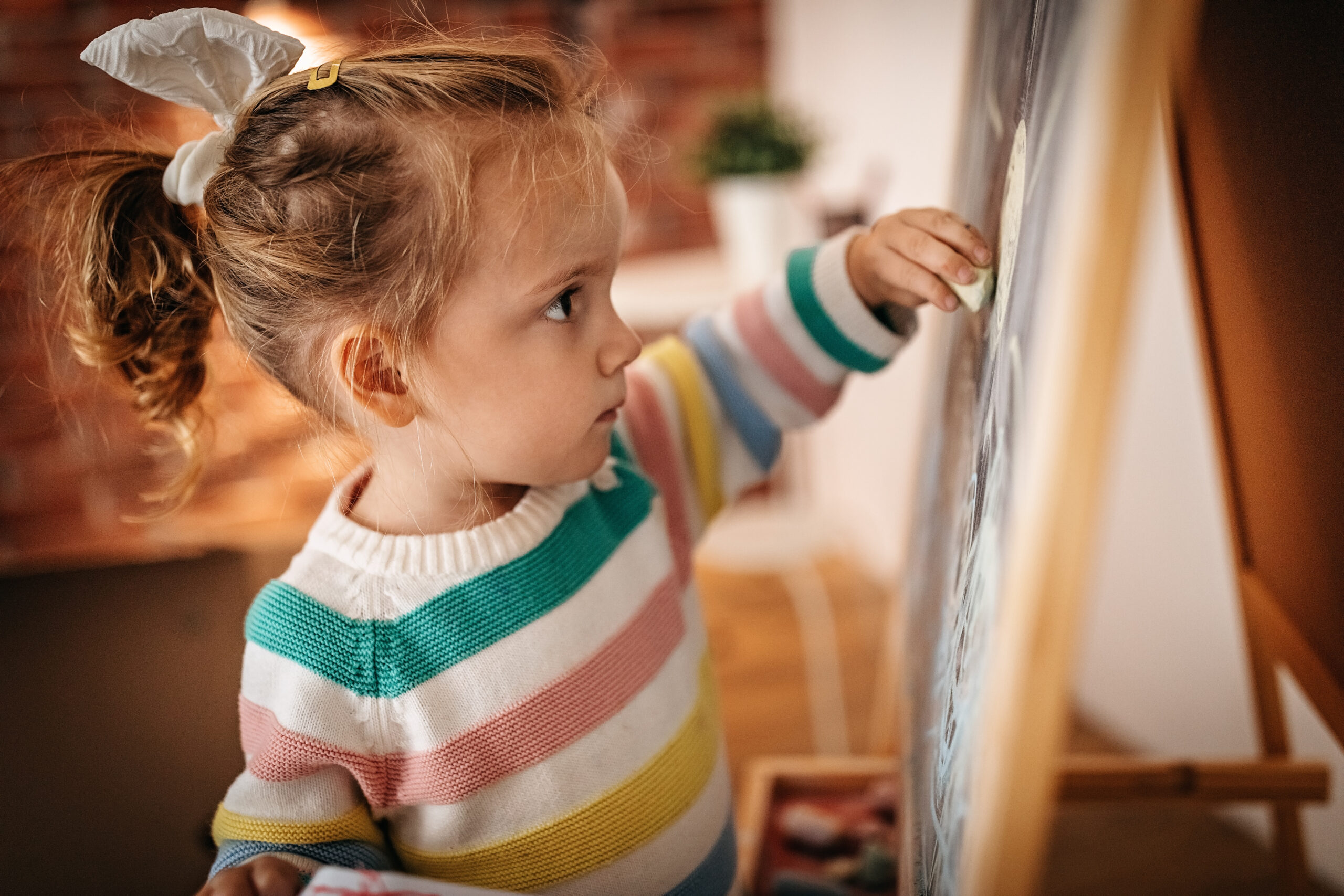
My daughter, Charlotte, was only 3 when my dad passed away, but to this day, she still talks about the funeral. Of course, her view is a bit skewed.
"Remember when Poppy was in the treasure chest?" she tells me. "Now he's in a stone." While it wasn't in the game plan, she caught a glimpse of my father in his casket before it was closed for the service. The stone was something she was familiar with prior to. Well over a decade before my dad's passing, I lost my mother. Charlotte and I had visited her headstone a couple of times, while I told her about my mom. My mom, who was a first-grade teacher throughout her wonderful yet short life, would have absolutely loved spending time with her granddaughter. But since life isn't all that fair, she never got to know she existed, or even meet my husband.
Death is talked about a fair amount in my house because, being an orphaned mom in her 30s, I don't have another choice. A few times, Charlotte — who's now on the brink of 5 — has woken me up around 6 a.m. with more questions about my dad.
"Hey Mom. Why did Poppy pass away?" she asks me, full of energy, while I'm still in the midst of a dream. Formulating an answer can be tough, since I never want to scare her. "Poppy was sick," I often say. "But, really sick. Not a cold, or a bumped knee."
As time has gone on, I've gotten slightly better with it. I've embraced the idea of death, telling her that my dad's memory is still very much alive in the stories we tell and the keepsakes we've held onto. But here are a few other resources that have made such a painful conversation a little easier for both of us.
1. Read 'Lifetimes: The Beautiful Way to Explain Death to Children'

My niece is a few years older than my daughter, so I asked my sister if she had any good book suggestions. I figured since the two of them had likely discussed my mother's passing before that, she'd be a bit more well-versed in the subject. Of course, she delivered. Lifetimes is a beautiful book that explains how everything in life has a different life span. As the introduction states, "There is a beginning and an ending for everything that is alive. In between is living."
The book, written by Bryan Mellonie and illustrated by Robert Ingpen, was initially released back in 1983 but is still incredibly wonderful when it comes to explaining death. It was also a good read for me, reminding me that we can't control every part of life. It'll make adults appreciative of the time they have — and perhaps feel more inspired to make the most of every day.
2. Join an Online Group With Others to Help You Discuss Together

Unfortunately, there are plenty of adults out there in the same situation — they've lost someone they love and don't know how to openly talk about it with their children. One of the biggest Facebook groups regarding grief is Grief Speaks Out, which has over 2 million members. That said, there are also specialty grief groups out there that may be better targeted to your own situation. Not only can you share ideas with others on how to pay tribute to a deceased loved one, but if your children are old enough, you might be able to connect them with friends of a similar age range who are going through the same feelings of grief. Personally, something I've learned is that having friends who've been through the same or similar experience has been priceless for managing emotions.
3. Find a Children's Program to Help Lead the Conversation
Even today, people credit the "Farewell Mr. Hooper" episode of Sesame Street as a milestone episode of programming. Actor Will Lee — who played the role of Big Bird's dear friend and owner of Hooper's Store — died in 1982. The producers felt as if it was best to be honest with their viewers as to what happened, since they knew children would pick up on his sudden disappearance. The heartfelt segment was an incredible way to honor his life and discuss the topic nationally.
More recently, the show addressed the topic again — but this time explaining to Elmo that his uncle had died. Sesame Street isn't the only show with great episodes on the topic — Rugrats aired an episode titled "Mother's Day" during its initial run on Nickelodeon, and Hey Arnold! aired an episode called "Parents Day" years later. All can be a wonderful way to bring up the topic and make your child feel less alone.
4. Find an Organization That Specializes in Grief
There are a lot of organizations out there that can link you and your child to a support group if you've lost someone close to you. They can also provide you with more research on how to best discuss the news of someone's passing. One of the best is The Children's Bereavement Center, which offers information about early childhood loss as well as secondary losses, which are the other areas of life that can be impacted by a death of a loved one. They offer free peer groups for a variety of different ages. It doesn't matter when the loss happens — they'll help with a loss from years prior just like they would with a loss that happened last week.
5. Remember That Pet Loss Can Also Be an Opportunity to Bring Up the Topic

While Charlotte has had to face the situation early on due to her grandfather, many people experience grief for the first time when they lose a pet. Grieving over a pet can be just as emotional, as pets are valued members of the family.
Luckily, there are plenty of good books on the topic that you should have handy, just in case you have a senior pet who might not have a long time left. One good book is The Invisible Leash, written by Patrice Karst. Again, it often helps people to know that other people have been through a similar grief, and many times, a fictional character in a book can offer a lot more support than you think.
6. Share Memories With Loved Ones

Stories and memories keep someone's spirit alive, even if they're not physically by your side. Don't be afraid to talk to your child about all of the good memories. They, too, can have some funny stories to pass on when they get older, even if they never got the chance to actually get to know the loved one firsthand.
Sometimes, people worry that telling a story might make someone who also experienced the loss sad. But oftentimes, it can be a relief to know how much of a difference that person made in multiple lives. It can be a comfort as well as a joy. Let family members know that you're open to discussion, and include your child. Laughing over the past can also be a great way to heal.
7. Accept All Emotions

Sometimes, for me, all it takes is a familiar word or feeling to set off the waterworks and start me crying about the loss of my parents. You should never really expect to "get over" grief, and it can hit you at any time. The same is true for kids. If a child had an especially close relationship with a now-deceased relative, it might take them a long time to really understand the severity of the loss. Let your child feel free to express their emotions. Tears may come at any time, and it's all part of the process.
8. Try Not to Overcomplicate Things

Some people hold religious beliefs on what happens after life. Other people think that nothing happens. While we don't know the answer for sure, it's important not to complicate things when it comes to talking to your children about death. Books are an excellent resource to have, but they might not always be handy. If you're with a spouse or a partner, you might want to talk about your approach together, so that your child doesn't get mixed messages and feel more confused.
Still, the topic might be hard for you to naturally talk about. If that's the case, focus on the key elements — a loved one died, which means they're no longer here. But you can honor them by sharing memories and thinking about old times. A very popular answer is that their "body stopped working," as it's true and it's something your child may be able to better visualize. It's also important to include that people have different ideas of what happens after death, and it's important to respect all views of thought.
If you're still having trouble, you can ask your child's pediatrician or school counselor if they have any tips.
9. Have Your Child Express Grief Through Art

Art is great for plenty of reasons: Not only is it a way for kids to help expand their minds and learn how it feels to create something original, but it can also help them process their emotions. Many therapists incorporate art while trying to help children process big events, so it makes sense to continue the process at home.
Your child's art doesn't have to consist only of portraits. You can ask your child to draw how they felt when their now-deceased friend or relative was around. Older children can also try their hand at poetry. Haikus and acrostics are a perfect way to start and can help them creatively organized their feelings.




